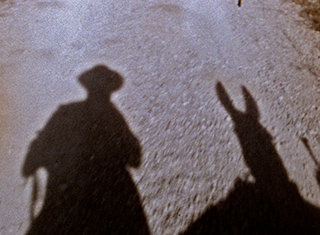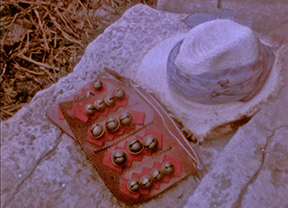Juror
Oskar Alegria
[Juror’s Statement]
Yamagata is a final destination, but also the beginning.
When I worked for the Punto de Vista festival in Navarra, Spain, we had a bridge between the two cities. Fujioka Asako was for many years our great “ambassador” in the Land of the Rising Sun. Later I was fortunate to visit the festival with my first film, The Search for Emak Bakia (2012), in the wonderful Double Shadows program (YIDFF 2015).
Now Yamagata is for me once again a double destination, with a new film made of ashes and fog, in which our landscape becomes Japanese in the mountains of my country. I will be at the festival with a third film, one with a name that is sonorous but that is dedicated to silence: Zinzindurrunkarratz.
Double Shadows, the other part of the shadow will be in the International Competition Jury, another honor and another pleasure. To watch films and project them. That is why I say that my arrival in Yamagata will be the start of a new path. Yamagata as a destination, Yamagata as a starting point. It is about making films with one’s feet, like on a long path. To film only beginnings. To always be at the start. To repeat the dream: a voyage and a film that takes us to Yamagata once again.
Born in 1973. Punto de Vista International Film Festival artistic director from 2013 to 2016 in Pamplona-Navarra. His first film The Search for Emak Bakia (2012, YIDFF 2015, about the search for the house in the Basque coast where Man Ray shot his Emak Bakia film) was shown at festivals around the world, including BAFICI, Edinburgh, Telluride, San Sebastian, Shanghai, and DocLisboa, has been translated into sixteen languages and won seventeen awards. His second feature Zumiriki (2019) premiered at Orizzonti Mostra de Venezia and won the best nonfiction film award at the Seville European Film Festival.


Zinzindurrunkarratz
- SPAIN / 2023 / Basque / Color, B&W / Digital File / 89 min
Director, Script, Photography, Editing, Sound: Oskar Alegria
Post Production: Luis Jambrina, Haimar Olaskoaga
Text Correction: Ander Izagirre, Harkaitz Cano
Laboratories: Retrolab, Film Rescue Europe
Source: Oskar Alegria www.oskaralegria.com
A filmmaker decides to retrace the path once used by village shepherds to get to their mountain pasture, but he cannot find a living person who knows the exact route. He decides to film the route using his family’s old Super-8 camera, but that camera, unused for forty-one years, no longer picks up sound. The forgotten road, the mute camera, together with a donkey named Paolo, become the protagonists of a journey full of memories, question marks, and silence. The title of the film is in the Basque language and is onomatopoeia used by shepherds to describe three places in the Andia Range in the Basque Mountains.
